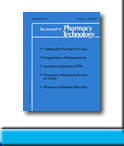 |
 |
Pharmaceutical Care: What’s in a Name? A Qualitative Analysis of Patient Perceptions of Pharmacy Practice
Duska M Franic, Leslie Tootle Tucker, and Sarah M Haddock
To request full article click here.
BACKGROUND: Pharmaceutical care has been integrated into the mission statement of every major pharmacy school and the profession of pharmacy in the US.
OBJECTIVE: To evaluate patients' awareness and understanding of pharmacy practice, pharmacy services, and pharmaceutical care.
METHODS: A cross-sectional study was conducted involving completion of a self-administered questionnaire by participants frequenting community pharmacies (independent, chain, discount, and grocery) in Georgia. Content analyses were performed to assess participants' knowledge and perception of available pharmacy services and pharmaceutical care.
RESULTS: Approximately half of the study participants were unfamiliar with pharmaceutical care despite its integration into pharmacy education. One percent described pharmaceutical care as the compounding phase of pharmacy, 2% described it as the early clinical practice model, 45.3% equated pharmaceutical care with dispensing (ie, the “professional shopkeeper”), and approximately 52% described pharmaceutical care accurately. Forty-three percent described at least one of the subcomponents of basic pharmaceutical care (ie, pharmacist commitment, definite outcomes, or process of care [eg, counseling, drug utilization review]) and 8% described true or enhanced pharmaceutical care (ie, quality of life).
CONCLUSIONS: The practice of pharmaceutical care is not widely understood by patients. Furthermore, many patients were unaware of the cognitive and clinical services that pharmacists provide. In the future, we expect the pharmacy profession to educate not only its pharmacists, but also its patients, about pharmaceutical care. Patients may not be seeking or demanding available services from their pharmacists because they are uninformed.
J Pharm Technol 2008;24:191-201.
To request full article click here.
|
|
|
||
|

